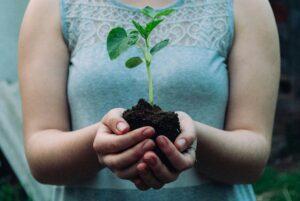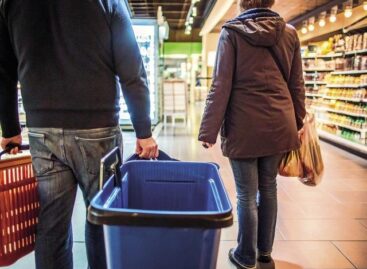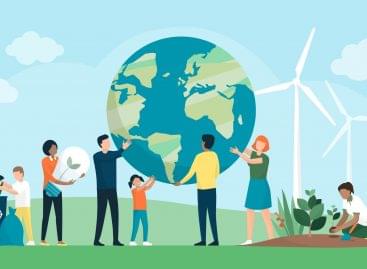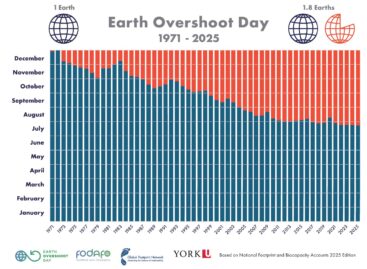We are using up the Earth’s resources today, and there is something deeply embedded in this that we don’t even think about.
This year, July 24th is global Overshoot Day, or Overconsumption Day – the date when humanity will have used up all of the Earth’s natural resources for this year. In Hungary, this day would have come on May 31st if everyone lived like Hungarians. For comparison: if everyone lived at Qatari consumption rates, Overshoot Day would be on February 6th at the earliest, while following Uruguay, our planet would have enough to provide us until December 17th. Based on current global overconsumption, we have accumulated 22 years of ecological debt at the expense of our planet.
 The Earth is currently using its natural resources 80% faster than they can be renewed — that’s like needing 1.8 Earths to sustain our current lifestyle. We have accumulated 22 years of ecological debt since the early 1970s. That is, even if overconsumption could be completely reversed, it would still take 22 years for the planet to regenerate itself.
The Earth is currently using its natural resources 80% faster than they can be renewed — that’s like needing 1.8 Earths to sustain our current lifestyle. We have accumulated 22 years of ecological debt since the early 1970s. That is, even if overconsumption could be completely reversed, it would still take 22 years for the planet to regenerate itself.
Digital self-control: environmental protection in the 21st century
The global Overconsumption Day is coming earlier and earlier every year, and our digital lifestyle is no small part responsible for this. The most effective way to postpone Overconsumption Day is to reduce carbon dioxide emissions, and energy consumption contributes greatly to this. The use of photos, videos, data centers and artificial intelligence is increasingly energy-intensive, leaving a huge ecological footprint behind us.
Most people do not think about the environmental impact of using smart devices and the internet. Although the digital space is invisible, the cloud, online storage and increasingly AI all take place in huge data centers, and their energy requirements already rival the annual consumption of entire countries.
“Digital awareness is not a matter of technical knowledge, but of attention and self-discipline. It will become increasingly essential to be conscious not only of our plastic use or transportation preferences, but also of our digital habits. It is also worth considering that organizing our digital life is not only good for the Earth, but also for our mental health.
I encourage everyone to think about what memories they would like to share with their friends or preserve for the future, because every pixel has a price. Conscious attention and reducing our ecological footprint are both easier if we do it together, supporting each other, for example in the Eco-Circles of the Conscious Consumers’ Easier Life” – explains Noémi Andacs, program manager of the Conscious Consumers’ Association.
Related news
Shared goal, different paths
🎧 Hallgasd a cikket: Lejátszás Szünet Folytatás Leállítás Nyelv: Auto…
Read more >We’ve Already Exhausted Earth’s Resources – Overshoot Day Arrived on July 24 in 2025
🎧 Hallgasd a cikket: Lejátszás Szünet Folytatás Leállítás Nyelv: Auto…
Read more >Related news
Workers’ wage demands and company wage increase plans are becoming increasingly distant from each other
🎧 Hallgasd a cikket: Lejátszás Szünet Folytatás Leállítás Nyelv: Auto…
Read more >







